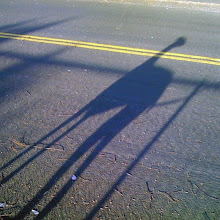Several of us got together last night to try to watch the Perseids, and we saw some some, but when I hear 200 meteors an hour, I expect a Vegas in the skies. So, as with so much, I'm disappointed. But I have a history of that, and decided to fish out a poem from probably 16 years ago. Be kind to this poem--it's just getting its driver's permit.
PERSEIDS
And the lawn chairs, their tang,
their metal frames, soon fall.
But first, the clouds the meteors
could barely break through.
The clouds hid the showers.
We saw some, yes, like
the lights of planes’ tails
on trips only from sky to sky,
like clear nights above O’Hare,
and all arrivals dropping from radar.
If I couldn’t confirm a sighting
with another party-goer
it seemed unreal, everyone’s peripheries
linked like Venn Diagrams,
as letters on the blackboard of night
chalked and furiously fell.
Left, then.
The others uncocked their necks
and eyed a mid-evening brunch
of shrimp and grits and talked
and ate and were friends there.
Layne and I went wanting, still,
off to a bar where the too old
drink, cheaply, steady as breath.
In three days he would load
a truck and take his family south;
he’d landed a job he wanted
in the way want can be lots of talk
and even more need. But now,
that night the stars fell unseen,
that night we would weave boozily home
to women in beds with space for us,
we drank, wanting to want. How
silly, how much. How many women,
and just each one had her two eyes,
two arms, two breasts, hundreds
of hairs, thousands of things
close to her heart, her heart.
We lapped in beauty like the creamy nights
of sky the country offers, the Milky Way
a pepetual retch of starry, stretched effluent.
Why make grand this lust for beauty?
To just plain want--it’s nothing pretty.
Still dressed for the heat of the day
Layne wore shorts and stood,
when a woman began to rub his legs,
petting him down like a dog.
They called her the Uni-Witch for she gave
customers grief with their change,
came to the bar nightly with
Women Who Run
with the Wolves, which she carried like a purse,
and never read. Want has a way
of saying both no and yes.
And Layne’s eyes, which should have been lit,
asked why of all of us, wanting
want, just once, to be as clear
as gin, as easy to order and down
and pay for. Instead, want impinges
like meteor showers, for no reason,
for nobody, everywhere, unseen.
Both noun and verb, it is our sentence,
our life, our hope, our jail, our criminal, our crime.
Labels: poetry of all things


